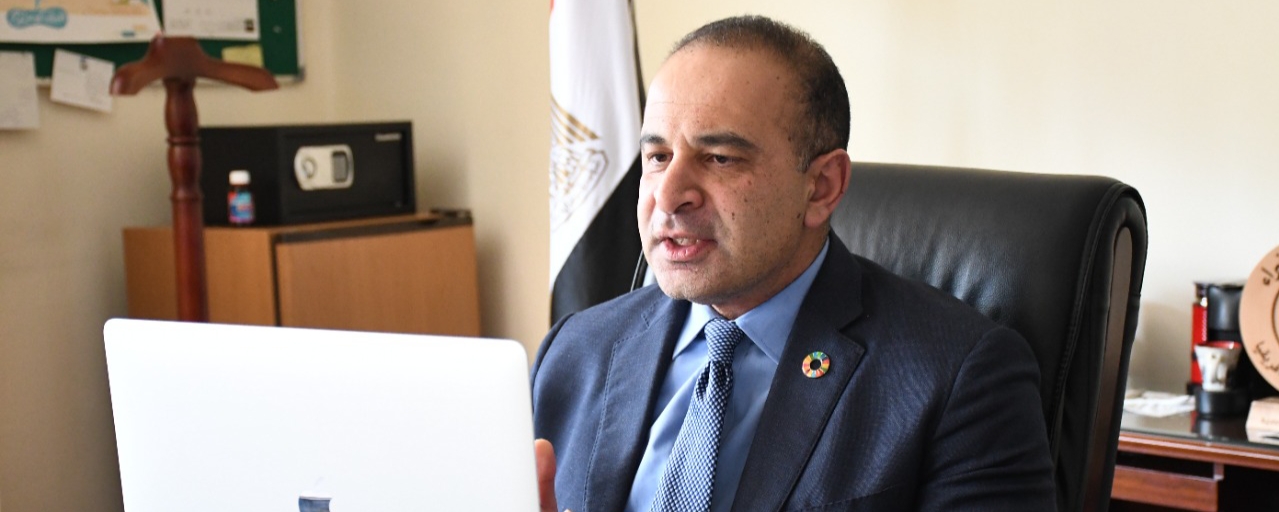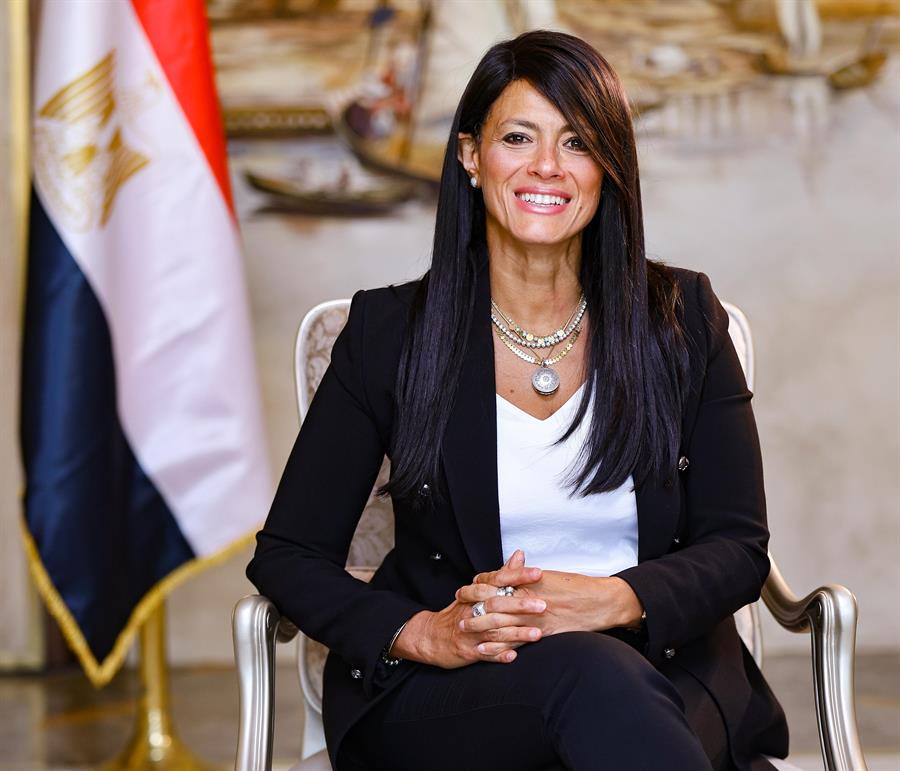The Ministry of Planning and Economic Development participates in the annual "Africa Day"

21 July 2021
The Ministry of Planning and Economic Development, represented by Dr. Ahmed Kamaly, Deputy Minister of Planning, participated in the annual Africa Day, which was held on the sidelines of the high-level political forum on sustainable development in New York, via video conference technology.
Dr. Ahmed Kamaly, Deputy Minister of Planning and Economic Development, spoke during his speech on some topics related to green recovery, renewable energy, digital transformation, and nature-based solutions.
Kamaly indicated that Egypt submitted its third voluntary national report (3rd VNR) this year, explaining that the second report, which was submitted in 2018, was well received by international institutions.
Kamaly added that the period from 2018 until now witnessed many developments, which culminated in The Covid-19 Pandemic.Kamaly explained that Egypt's 3rd VNR includes many challenges and messages.
He noted that the Egyptian government has been proactive since the emergence of the Covid 19 pandemic, as it has taken some policies that centered around three main pillars: protection, mitigating the severity of the pandemic, and flexibility.
Kamaly also referred to Egypt's launch of the second phase of the national economic reform program, which is the stage of structural reforms, stressing the importance of settling sustainable development, which represents a key to effectively dealing with the development gaps in Egypt's governorates, by providing funding and measures necessary to improve local competitiveness.
Kamaly pointed to the completion of the update of Egypt's Vision 2030, which represents the national version of the 2030 Agenda, explaining that one of the most important reasons for the update is to better align with Agendas 2030 and Africa 2063, taking into account the emerging challenges that have emerged in recent years.
Kamaly explained that Egypt's voluntary national report for the year 2021 included measures taken to deal with the challenges identified in the 2018 report, which included data, financing, governance, and population growth.
Kamaly continued that this year's report included many other challenges facing the implementation of the sustainable development goals, including the digital divide, the low level of women's participation in the workforce, as well as multifaceted environmental challenges such as climate change, land degradation, and water scarcity.
Kamaly also stressed the importance of information technology and digital transformation, especially in government services, adding that information technology may contribute to improving governance as well as health, education, and social protection services by targeting poverty and improving the targeting system to reach the poorest groups.
Kamaly asserted the importance of partnership to achieve sustainable development goals, whether at the local, regional, and global levels as well.
El-Said stressed the need for all development partners to work in an atmosphere of peace and cooperation to achieve the 2030 vision and agenda and not leave anyone behind.









